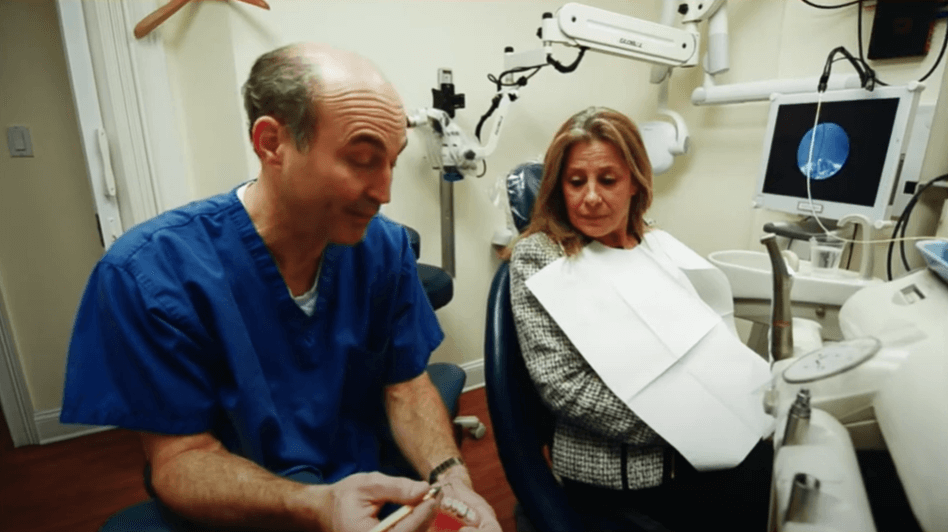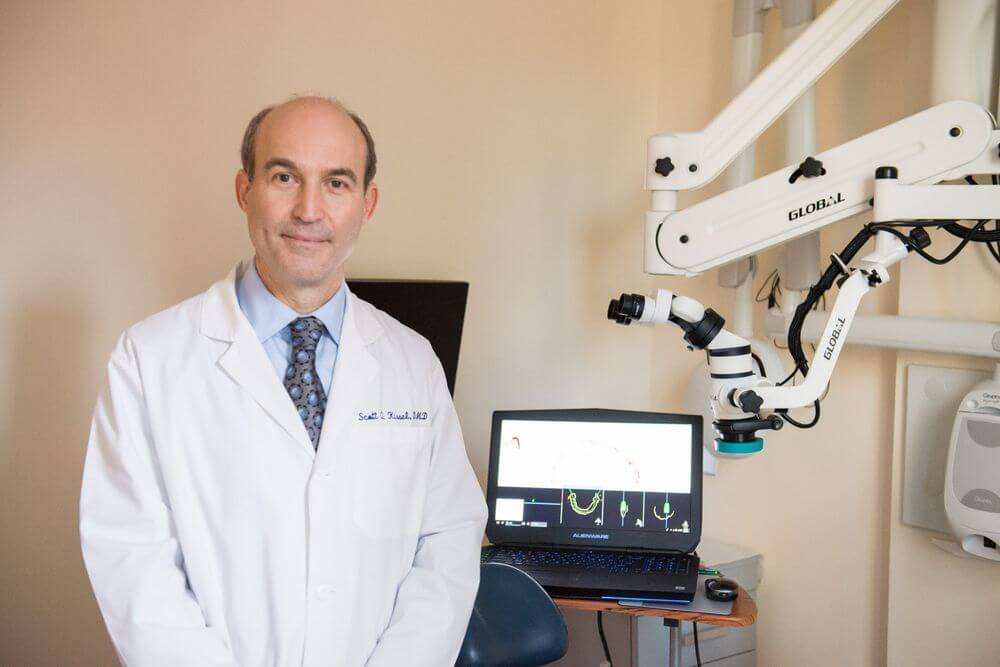Tooth extraction is a common dental procedure performed for various reasons, such as severe tooth decay, gum disease, overcrowding, or trauma. Proper aftercare is crucial to ensure a smooth recovery and minimize complications.
Our Midtown Manhattan dentist guides you through how to properly care for your oral health after a tooth extraction. If you have any questions, contact our dental office today by calling 212-702-9088.

Following an extraction, you’ll want to follow these instructions and your dentist’s recommendations to ensure proper healing.
After the extraction, your dentist will place a gauze pad over the extraction site. Bite down gently but firmly on it for about 30 to 45 minutes. This helps control bleeding and promotes clot formation.
Although dental microsurgery at NYC Periodontics and Implant Dentistry minimizes oral trauma, you may experience some discomfort after the procedure. Your dentist may prescribe pain medication or recommend over-the-counter pain relievers. Follow the dosage instructions carefully.
Apply an ice pack wrapped in a cloth to the affected area for 15 to 20 minutes at a time during the first 24 hours. This helps reduce swelling and alleviate pain.
Rest is essential to aid in the healing process. Avoid strenuous activities for the first 24 hours after the extraction.
For the first few days, you’ll want to only eat soft foods to prevent damaging the extraction site. Opt for foods like:
Also, be mindful of your local anesthetic. Don’t try to eat until any numbness has worn off on the day of your surgery.
Using straws can create suction and dislodge the blood clot, leading to a painful condition called dry socket. Avoid using straws for at least a week after the extraction.
Drink plenty of water to stay hydrated, but avoid very hot or cold beverages, as they can be irritating to the surgical site.
Continue to brush your teeth but be extra gentle around the extraction site. Use a soft-bristled toothbrush and avoid vigorous rinsing.
Our dentist may recommend rinsing your mouth with warm saltwater several times a day, starting 24 hours after the extraction. This helps keep the area clean and aids in healing.
Some swelling is normal after a tooth extraction. Applying an ice pack, as mentioned earlier, can help reduce it. If swelling persists or worsens after a few days, contact your dentist.
It’s normal to experience minor oozing or bleeding for the first 24 to 48 hours. If bleeding is excessive or continues, contact your dentist as soon as possible.
Dry socket is a painful condition that occurs when the blood clot at the extraction site dislodges or dissolves prematurely. Avoid smoking and straws, and follow your dentist’s instructions to prevent it.

Attend all follow-up appointments as scheduled by our dentist. They’ll monitor your healing progress and address any concerns.
The healing time for a tooth extraction site can vary depending on factors like the type of extraction, your general health, and adherence to aftercare instructions. In general, it can take about one to two weeks for the initial healing, but complete gum and bone tissue healing from tooth removal can take several months. Your dentist will provide more specific guidance based on your situation.
If you experience severe, throbbing pain that starts a few days after the extraction, bad breath, or an unpleasant taste in your mouth, contact your dentist immediately. They can provide dry socket treatment, typically involving a medicated dressing to alleviate the pain and promote healing.
Caring for your oral health after tooth extraction is vital to a successful treatment. By eating soft foods, being careful around the surgical site, and attending follow-up appointments, you’ll heal in no time. To schedule an appointment with our Midtown Manhattan dentist, contact our dental office today by calling 212-702-9088.
Quick Links
Open Hours
Monday to Friday
8:30am – 5pm